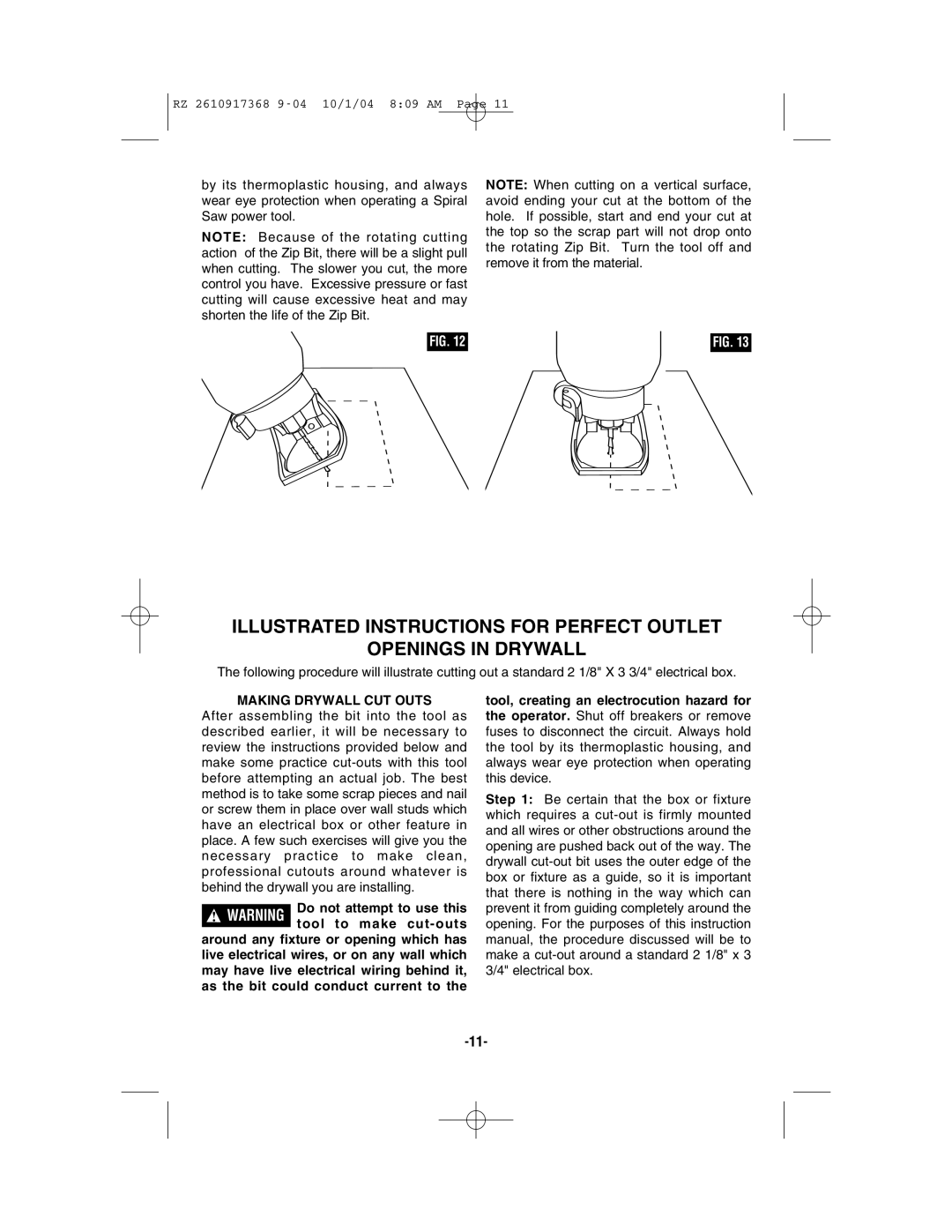
RZ 2610917368
by its thermoplastic housing, and always wear eye protection when operating a Spiral Saw power tool.
NOTE: Because of the rotating cutting action of the Zip Bit, there will be a slight pull when cutting. The slower you cut, the more control you have. Excessive pressure or fast cutting will cause excessive heat and may shorten the life of the Zip Bit.
NOTE: When cutting on a vertical surface, avoid ending your cut at the bottom of the hole. If possible, start and end your cut at the top so the scrap part will not drop onto the rotating Zip Bit. Turn the tool off and remove it from the material.
FIG. 12 |
| FIG. 13 |
ILLUSTRATED INSTRUCTIONS FOR PERFECT OUTLET
OPENINGS IN DRYWALL
The following procedure will illustrate cutting out a standard 2 1/8" X 3 3/4" electrical box.
MAKING DRYWALL CUT OUTS
After assembling the bit into the tool as described earlier, it will be necessary to review the instructions provided below and make some practice
!WARNING Do not attempt to use this tool to make
around any fixture or opening which has live electrical wires, or on any wall which may have live electrical wiring behind it, as the bit could conduct current to the
tool, creating an electrocution hazard for the operator. Shut off breakers or remove fuses to disconnect the circuit. Always hold the tool by its thermoplastic housing, and always wear eye protection when operating this device.
Step 1: Be certain that the box or fixture which requires a
